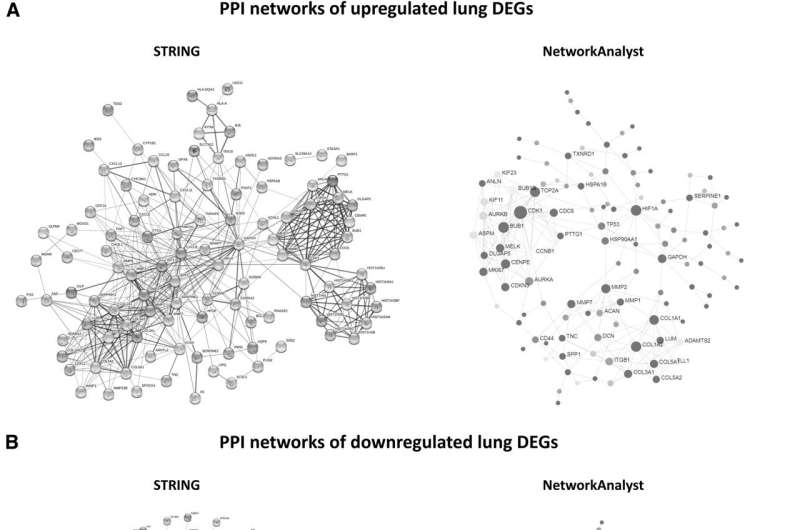
A systems biology approach to examine the effects of SARS-CoV-2 virus in lung and whole blood identified new COVID-19 genetic signatures that could represent potential therapeutic or diagnostic targets. This new study is published in OMICS: A Journal of Integrative Biology.
COVID-19 is a systemic disease affecting tissues and organs including and beyond the lung. “The blood is a good indicator of the overall host response as it carries the immune cells throughout the body,” state the study authors. “The combined study of the two tissues could unravel the complexity of the host response to SARS-CoV-2.”
Corresponding authors Prof. Vangelis Manolopoulos and Nikolas Dovrolis, Ph.D., from the Medical School of the Democritus University of Thrace, and coauthors in Alexandroupolis, Greece, used transcriptomics and analyses of differentially expressed genes in lung samples and whole blood samples from COVID-19 patients and healthy individuals.
They identified 35 differentially expressed genes common between lung and the whole blood, and importantly, two genes, namely CYP1B1 and TNFAIP6, that have not been previously implicated with COVID-19. They also discovered four miRNA potential regulators.
“More than two years into the COVID-19 pandemic, the global struggle with SARS-CoV-2 continues. Our knowledge of the effects of COVID-19 at a whole organism level is still limited. In this context, the study shows the value of a systems biology approach to unpack the pathophysiology of COVID-19 in multiple tissues. The genetic signatures identified in the study open up new possibilities for COVID-19 drug and diagnostic discovery. I invite new manuscripts on COVID-19 systems biology and multi-omics research for peer-review in the journal,” says Vural Özdemir, MD, Ph.D., DABCP, Editor-in-Chief of OMICS.
Mary Ann Liebert, Inc

